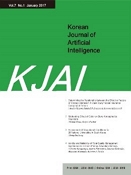- 권한신청
- E-ISSN2508-7894
- KCI
Multi-Scale Dilation Convolution Feature Fusion (MsDC-FF) Technique for CNN-Based Black Ice Detection
Abstract
In this paper, we propose a black ice detection system using Convolutional Neural Networks (CNNs). Black ice poses a serious threat to road safety, particularly during winter conditions. To overcome this problem, we introduce a CNN-based architecture for real-time black ice detection with an encoder-decoder network, specifically designed for real-time black ice detection using thermal images. To train the network, we establish a specialized experimental platform to capture thermal images of various black ice formations on diverse road surfaces, including cement and asphalt. This enables us to curate a comprehensive dataset of thermal road black ice images for a training and evaluation purpose. Additionally, in order to enhance the accuracy of black ice detection, we propose a multi-scale dilation convolution feature fusion (MsDC-FF) technique. This proposed technique dynamically adjusts the dilation ratios based on the input image's resolution, improving the network's ability to capture fine-grained details. Experimental results demonstrate the superior performance of our proposed network model compared to conventional image segmentation models. Our model achieved an mIoU of 95.93%, while LinkNet achieved an mIoU of 95.39%. Therefore, it is concluded that the proposed model in this paper could offer a promising solution for real-time black ice detection, thereby enhancing road safety during winter conditions.
- keywords
- Black ice detection, Convolutional Neural Network (CNN), Multi-scale dilation convolution, Feature fusion, Road safety
- 다운로드 수
- 조회수
- 0KCI 피인용수
- 0WOS 피인용수














